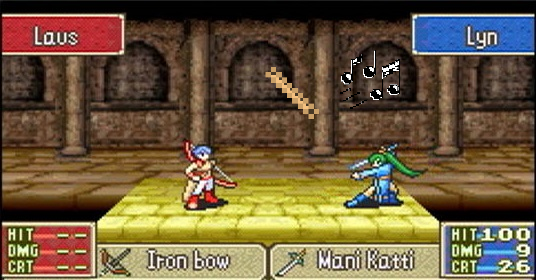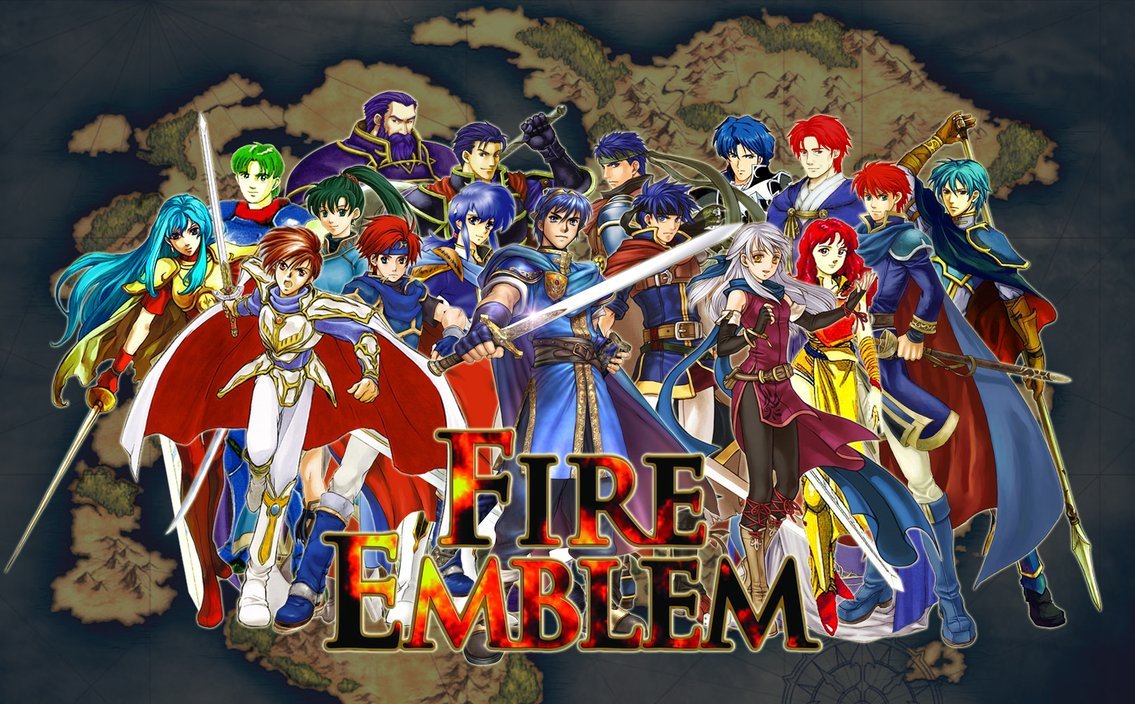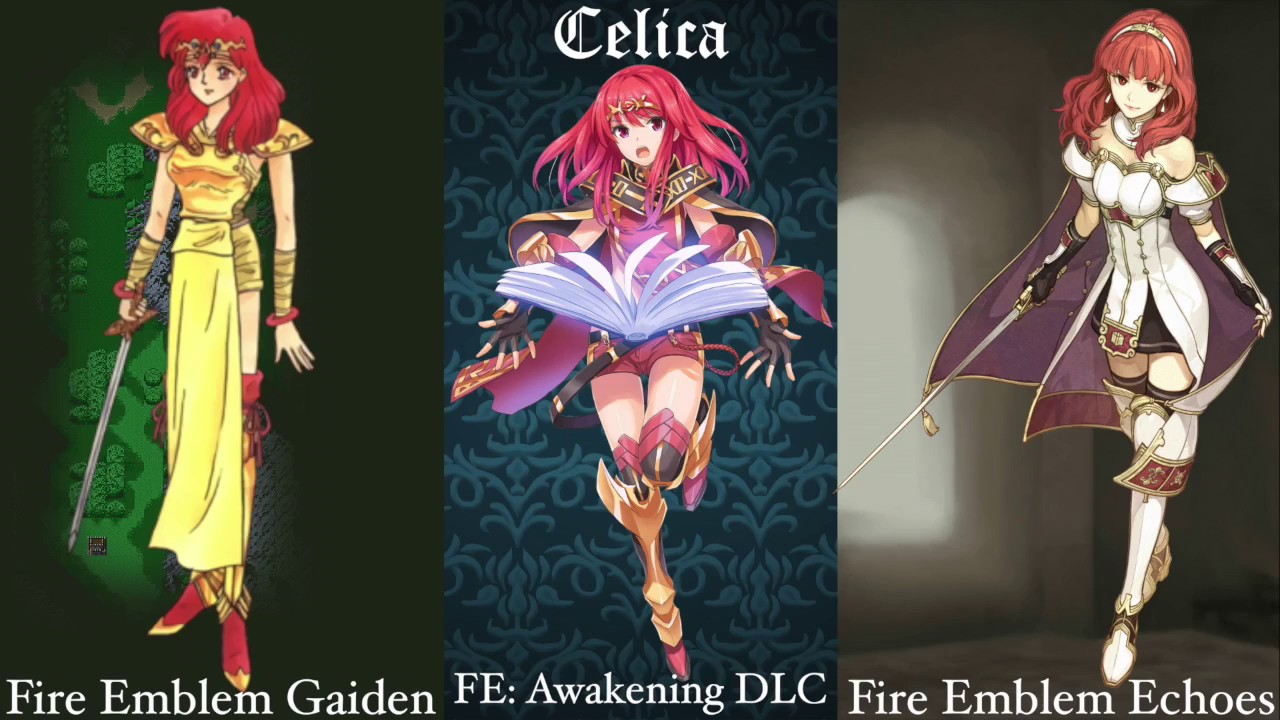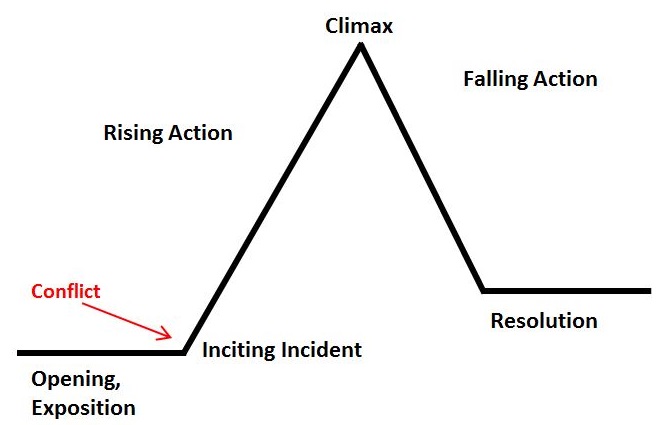We know basically nothing about the upcoming Fire Emblem title besides the fact that it’s a Nintendo Switch exclusive — but that sure isn’t stopping the community from speculating about it.
In a way, this speculation lets the Fire Emblem community reflect on past games, looking back at the evolution of the series in search for a hint of what’s to come.
Most of the discussions surrounding the upcoming Fire Emblem are focused on its gameplay and character design — two things that have changed drastically for the series over the past few years, leading to a somewhat divided community, with people wanting different things from the new game.
However, one thing that I haven’t seen a lot of conversation about is Fire Emblem’s music. The topic may not be as controversial as changes in gameplay or character design, but the music has definitely changed over the years, and it’s something that could very possibly change yet again in the new game.
The Music of GBA-era Fire Emblem
Obviously, it’s safe to say that the new Fire Emblem will feature its own unique soundtrack, but the way combat music has been handled in the series has changed over the 15 years since the release of the first Fire Emblem game for the Game Boy Advance — and it could change again with the new game.
The GBA-era Fire Emblem games (Fire Emblem and Fire Emblem: The Sacred Stones) are probably how the vast majority of veterans in the Western Fire Emblem community were introduced to the series. For the most part, the music in those games was handled a lot like it is in your typical JRPG — you had your overworld/exploration/map music that would switch to battle music when you, well, got into a battle.
Although the overworld music would change as you progressed through each game, the battle tunes would remain the same (one player battle theme, and one enemy battle theme), with a few unique boss fight tracks here and there.
The Music of Console-era Fire Emblem
After The Sacred Stones, Path of Radiance was released for the GameCube, and it’s probably safe to say that the return to console allowed for a larger library of music, since there were not two but four battle themes — two for the player, two for the enemy! That may not seem like much, but once you hit chapter 18, the game replaces the first set of combat tracks with the second: “Clash” becomes “Decisive Attack,” and “Defensive Battle” becomes “The Enemy Draws Near.”
This (permanent) change in music reinforced the sense of progression in Path of Radiance’s story, as chapter 18 begins right after Ike promotes from Ranger to Lord and becomes the leader of the Crimean army.
Radiant Dawn, the direct sequel to Path of Radiance, does things a little differently. The game is split up into multiple acts, each featuring different factions/nations that you both play as and fight against. Each faction (both player and enemy) has their own battle theme — the Daein army has “March,” the Greil Mercenaries have “The Devoted,” bandit enemies use “Waves of Discord,” and so on.
In Radiant Dawn’s case, the combat music is used to solidify each faction’s identity, which is important because there’s a lot of jumping around in the story. Also, the combat music finally flows continuously between battles, meaning you don’t have to hear the first 10 seconds repeated over and over again.
The Music of 3DS-era Fire Emblem
Like with the series’s gameplay and characters, the 3DS Fire Emblem games (Fire Emblem Awakening and Fire Emblem Fates) made a very drastic change to the way battle music is handled. When you enter combat, the overworld music in a given chapter will dynamically crossfade into its combat arrangement, which features an identical melody and rhythm, but a different instrumentation.
Here are two examples from Fire Emblem Fates: “Dusk Falls” & “Dusk Falls (Fire)” and “Past Light” & ”Past Light (Storm).” (Just hit the play button at the bottom and mess around with the volume slider of the video on the right to have the combat track fade in and out.)
The adaptive soundtracks of the 3DS Fire Emblem games lend each chapter a very strong sense of continuity, which helps to maintain the drama of the rising and falling action that comes with each battle.
In fact, Fire Emblem Fates takes things a step further by getting rid of enemy phase music, using only a single track (and its combat variation) for the entirety of each chapter.
The Future of Music in Fire Emblem
Personally, I’d like to seem them expand on what they had with Fire Emblem Awakening and Fates by recording even more variations for each map theme. For example, Fates had a battle theme that replaced the regular one when an allied unit in combat was at risk of death. It’d be cool if they were able to include that, as well as the chapter’s boss theme, as variations of the map melody in addition to the combat one.
Or, they could record a single, adaptive battle theme, dynamically adding different instruments and layers to the piece depending on which character is participating in the fight or on which weapons they’re using or … anything, really.

However, as with the series’s gameplay and characters, it’s hard to say in which direction the next game will take the soundtrack. While most players probably see Path of Radiance‘s and Radiant Dawn‘s approach as an upgrade from the GBA games because of the variety of tracks they offer, many players probably saw the dynamic cross-fade approach of the 3DS games as a step back from Radiant Dawn for the same reason — there’s less musical variety in a given chapter.
—
Theorycrafting in the Fire Emblem community is a pretty common way to spark gameplay discussion and analysis — heck, creating tier lists is practically a pastime for them.
While speculating about the upcoming Fire Emblem game may not involve any number crunching, I like to think that it creates just as much to talk about, because it’s a chance for us to reexamine the series, looking back at its gameplay mechanics, its characters, its story, and in this case, its music.









Published: Dec 12, 2017 10:00 pm